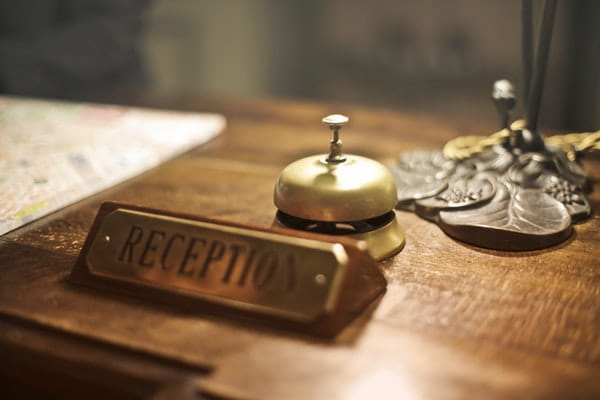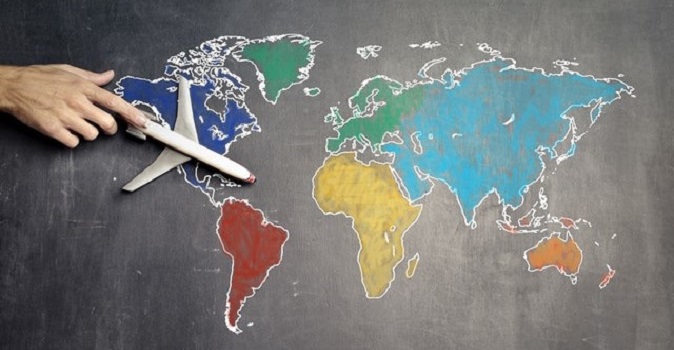You’ve scheduled your first week-long solo trip to Thailand or are gearing up for a family vacation to the Bahamas. Then something happens, and you have to cancel your plans.
No one books a trip planning to cancel it, but it’s good to know what to do when it does happen.
The idea of canceling and trying to get refunds can be overwhelming. This guide features a list of steps to help you stay organized in each of your cancellations. You’ll also discover best practices for canceling reservations and pre-paid tickets.
Jump Ahead
- Step-By-Step Guide for Canceling a Trip
- How to Cancel a Flight
- How to Cancel a Hotel / Resort
- How to Cancel an Airbnb
- How to Cancel a Rental Car
- How to Cancel a Tour / Admission Ticket
- Tips for Canceling a Trip
- How to Speak with Customer Service Agents
- Alternatives to Canceling a Trip
Trip Cancellation Checklist
Step 1: Communicate with Your Travel Companions
It’s most important to communicate with your travel companions first. Unless you are traveling alone, you should be transparent with family, friends, or partners who are traveling with you.
Let them know as soon as possible about any potential interferences with the trip, and don’t cancel anything without letting them know first. Early communication can allow them to make their own adjustments if needed.

Step 2: (Optional) Contact Your Travel Agent
If you hired a travel agent to help you plan your trip, they should be the next call you make. Since your travel agent was in charge of making reservations and scheduling transportation, they will need to be notified as soon as possible so they can make adjustments.
The benefit of having a travel agent is that you have a travel expert working to get you refunds or other forms of compensation for your cancellation. Before canceling anything, talk to your travel agent about your options.
Step 3: Create a List of Trip Reservations and Pre-Paid Tickets
Start by looking at your trip itinerary. Make a list of any pre-paid transportation tickets like airline or train tickets.
Then create a list of any accommodation reservations. Finally, make a list of other reservations or pre-paid tickets for activities you planned to do during your trip.
This complete list will help ensure you cancel each of your reservations or tickets and don’t forget any. Below, learn about typical practices for canceling different types of reservations, including flights, hotels, Airbnbs, rental cars, and tour admission tickets.
Step 4: Read Your Travel Providers’ Cancellation Policies
Now that you have a list of your reservations and pre-paid tickets, you need to read through each company’s cancellation policy. Ideally, you would have read these policies before booking, but it’s important to refresh your mind on each company’s policy.
Keep in mind it is often more difficult (or impossible) to get a refund for tickets or reservations made through third-party vendors like Kayak or Expedia.
Take notes on how the cancellation process works. Make sure you can answer these questions when reading cancellation policies:
- Can I cancel through an online portal or do I need to call or email?
- What is the customer service phone number / email address?
- Does the company provide refunds, vouchers, or points?
- Is there a specific time frame for when I can receive a refund? Are there particular circumstances?
- When will I receive my refund?
Make sure you can answer each of these questions before moving on to the next step.
PRO TIP! If you are having trouble finding information about a company’s cancellation policy, contact their customer support for answers to any questions.
Step 5: Review Your Travel Insurance Policy Documents
Travelers who purchase a trip cancellation insurance plan should read through their policy’s coverage description prior to canceling a trip. Make sure you understand the policy’s covered reasons for trip cancellation. Your reason for cancellation must be listed as a covered reason in order to receive reimbursement under the policy’s Trip Cancellation benefit.
Note that some policies offer an optional Cancel for Any Reason (CFAR) benefit. If you added this coverage to your plan, you will be reimbursed a percentage of the unused, non-refundable, pre-paid payments or deposits you made for your trip—as long as you follow the correct cancellation procedures outlined in your policy documents.
For example, you may be required to cancel within a certain number of days prior to your trip to be eligible for CFAR coverage. You can upgrade your Atlas Journey plan from WorldTrips with a Trip Cancellation for Any Reason benefit and choose either 50% or 75% back for cancelling due to a non-covered reason. Upgrade availability varies by plan and state residency.
Learn about what is covered and what isn’t covered by your travel insurance plan to help you in your cancellation process.

Step 6: Complete Cancellations
Now that you have all the necessary information regarding your trip and how to cancel it, it’s time to follow through.
Start with reservations and pre-paid tickets that have time restraints on when you can cancel them. Ensure that you cancel them within the necessary time frames. Then move down your list of other reservations and ticket purchases.
If you get stuck trying to cancel a reservation, reach out to the company’s customer service. Remember to be kind but firm when speaking with customer service. You might have the opportunity to negotiate better compensation upon your cancellation.
What Are Late Cancellation Fees?
You may encounter late fees when attempting to cancel your trip reservations. For example, some airlines charge a fee for canceling your flight within 24 hours of the departure.
Make sure you know whether your travel provider charges late fees and what you can do to avoid them.
How to Cancel a…
Flight
Airline reservations are often tricky to cancel. Each airline has their own cancellation policy. See the list below of the biggest airline providers in the world to learn about their specific cancellation and refund policies.
- American Airlines
- Delta Air Lines
- Southwest Airlines
- United Airlines
- Ryanair
- China Southern Airlines
- Lufthansa
- China Eastern Airlines
Major airline companies typically require you to fill out a form on an online portal to adjust your reservations.
Some companies do not provide a refund for purchases, while others provide credit for future flights or cash refunds to your payment type used at purchase.
Other airlines may only provide refunds for situations deemed as “extenuating circumstances” like a customer’s death or death of a family member. You may consider calling your airline’s customer service if you think you have a compelling case for canceling your reservation.
What Are Passenger Rights?
Travelers flying from the U.S. or within the U.S. are allowed certain passenger rights. The U.S. Department of Transportation states airlines must give customers (who purchase a ticket at least seven days before a flight) one of two options:
-
They must allow passengers to cancel their reservation and receive a full refund without penalty for 24 hours, or
-
They must allow passengers to reserve a ticket at the quoted price without paying for the ticket for 24 hours.
See the U.S. Department of Transportation’s “Refunds” page for more information about your rights as a passenger.
Hotel / Resort
Hotel or resort reservations tend to be the easiest to cancel. Often a quick call to your accommodation’s provider can mean canceling without any penalty.
However, the situation can be more complicated if you purchased a room at a non-refundable rate or you cancel too late. These situations may mean you won’t get a refund, or you will be charged a late fee. If this is the case, try to speak to a customer service representative to see if you can negotiate a better deal.
Airbnb
Many travelers book an Airbnb rental for their accommodations while traveling. If your Airbnb stay is less than 28 nights, then your host chooses their preferred cancellation option.
Your reservation details will include your host’s cancellation policy. Options include:
- Flexible – You can cancel for free until 24 hours before check-in. If you cancel less than 24 hours before, you will receive a full refund minus the cost of the first night and the service fee.
- Moderate – You can cancel for free until five days before check-in. If you cancel less than five days before, you will receive a 50% refund minus the cost of the first night and the service fee.
- Strict – You can cancel within 48 hours of booking as long as it is at least 14 days before check-in. After 48 hours, you can cancel up to seven days before check-in and get a 50% refund of the nightly rate and cleaning fee, but not the service fee.
Airbnb stays longer than 28 days are automatically assigned a specific cancellation policy. The cancellation policies are as follows:
- Long Term (28 nights or more) – You can cancel within 48 hours of booking and receive a full refund as long as it is at least 28 days before check-in. Cancellations after 48 hours receive a full refund minus the first 30 days and the service fee.
- Super Strict 30 Days (only select Airbnbs) – You can cancel at least 30 days before check-in for a 50% refund of the nightly rate and cleaning fee minus the service fee.
- Super Strict 60 Days (only select Airbnbs) – You can cancel at least 60 days before check-in for a 50% refund of the nightly rate and cleaning fee minus the service fee.
You may receive a full refund if you cancel because of an emergency. See Airbnb’s "Extenuating Circumstance Policy" page for more information.
Rental Car
Don’t forget to cancel your rental car when canceling a trip. Your rental agency’s website is a great place to find information about their cancellation policy. If you cannot find the cancellation policy on their website, give customer service a call.
Companies tend to be more lenient to those who cancel within 24 hours of booking the car. Later cancellations may mean additional fees or little compensation at all.
Tour & Admission Tickets
Cancellation policies for tours or admission tickets can vary widely based on the company. Some tickets may be non-refundable, while others are more lenient.
PRO TIP! Smaller companies tend be less willing to refund after a purchase.
Call the company’s customer service to see if there is any possible leniency in their policy. You could try to negotiate for a gift card or voucher refund to use later. Make sure to cancel as soon as possible to increase your chances of getting a better refund.
Step 7: File a Claim with Your Travel Insurance Provider
Those with a trip cancellation policy can now submit their claims once their trip is cancelled. Review your policy documents one more time to ensure you understand what is and isn’t covered.
Gather your evidence (i.e., receipts, confirmations, emails, etc.) and your policy ID. You should be able to file a claim through an online portal, email, or mail-in form. See your insurance provider’s website for details on filing a claim and call customer service if you have any further questions.
It usually takes time for your claim to be reviewed, so be patient and make sure you provide as much documentation as possible to help speed up the process.

Tips for Canceling a Trip (and How to Increase Your Chances of Getting a Refund)
Cancel As Soon As Possible
Cancellations are usually easier to manage the sooner they are started. Canceling months or weeks before a trip is also more courteous to travel companions who may schedule off work, school, or other activities for the trip.
Additionally, early cancellations could mean less hassle in getting refunds for your purchases. Many trip services like hotels, Airbnbs, and airline companies don’t allow full refunds for cancellations within 24 or 48 hours of the reservation or may apply additional cancellation fees for the trouble.
Call, Don’t Email
You may need to contact a company’s customer service to complete your cancellation or get clarification on cancellation policies. Though email may be more convenient for you, calling the company’s customer service number may be more efficient for last-minute cancellations.
There are often delays in email responses when contacting a company, which can be stressful when attempting to cancel a last-minute trip. Additional clarifying questions and concerns can often be resolved more quickly over the phone.
If you find yourself attempting to negotiate a better refund deal for your cancellation, it may be easier and more effective to have a one-on-one conversation with a representative over the phone rather than emailing.
However, some companies may request that customers contact their customer service through email or online chat.
How to Speak with Customer Service Agents
Talkdesk created a list of tips to help people get better customer service while interacting with customer service agents. Use the tips below when you speak to customer support.
-
Be Prepared. Come to the table with notes on your situation and any steps you have taken to complete your cancellation. Have receipts, flight numbers, and any other evidence that might be relevant during your conversation ready to go.
-
Talk to a Real Person. If you are not automatically directed to a real person, take the proper steps through the phone tree to reach a real person.
-
Use Empathy to Your Advantage. Speak honestly. Try to connect with the customer service agent and help them understand your situation. Relating to the person and making a connection could lead to a better outcome on your part.
-
Be Courteous. Customer service agents speak with many stressed or frustrated customers each day. Do not approach the conversation yelling or blaming. Instead, be polite and calm through your conversation. The agent is more likely to go out of their way to help you if you are polite to them.
-
When Calling Back, Ask for the Same Agent. Some issues may require you to call back in order to resolve the problem. Ask to speak with the same agent you did before for continuity.
Keep Documentation of Everything
A best practice for all purchases and reservations is to document everything in case you must cancel your trip.
Save all emails, receipts, conversations, and printed documents from travel companies and their representatives. Keep these documents at easy access until you have completed your trip.
Documenting your entire reservation and purchase process can help speed up your cancellation process. Also, you may need to provide documentation when filing a claim to your travel insurance provider.
Additionally, documenting your cancellation process allows you to provide evidence if you run into issues receiving your refund or vouchers.
PRO TIP! Ask for a cancellation number when completing your cancellation process if you are not given one. This number can be a helpful reference if you experience issues receiving refunds or vouchers.
Consider Alternative Refunds
Some travel companies may not provide a full refund of costs upon your cancellation, especially if you cancel last minute. However, they may provide alternative forms of refund like vouchers or credits.
What are Travel Vouchers?
Travel vouchers and credits typically work like gift cards. The voucher can be used toward future purchases with the company. This could mean a round trip ticket or one night at a hotel, with the cost paid for by the company.
Though sometimes not ideal, these types of refunds could allow for more affordable travel in the future.
PRO TIP! You may be required to use your travel voucher or points within a certain time frame. Look for an expiration date or contact the company’s customer service to ask whether vouchers expire if you are unsure.
Alternatives to Canceling a Trip
Sometimes completely canceling a trip isn’t the only option when you find yourself unable to travel. You may have other options that allow you to experience travel at a different time or in a different way.
It is sometimes easier to adjust your trip than to cancel it completely.
Adjust Trip Activities
Maybe you find out the music festival or art show you want to attend has been canceled. Instead of canceling your flight and hotel, consider alternative activities you could do in the city.
Is this the first time you’re visiting the city or country? Your destination could be home to many unique features you hadn’t considered otherwise. Maybe you decide to visit a couple of the national museums or historical sites, hike through beautiful and impressive mountains, or relax by the beach.
Just because your planned activities have been canceled, it doesn’t mean the destination doesn’t have more possibilities for exploration and fun.
Move Travel Dates
What if you become sick and are unable to travel or bad weather at your destination makes you reconsider your trip? You could consider moving your trip to a different date. This could be a great option for those who still want to travel to a destination, but other circumstances cause them to reconsider the timing.
It can be much easier and more affordable to adjust your travel dates as opposed to canceling your trip altogether. Some travel companies may allow you to adjust your reservations easily without additional fees.
Read your service providers’ cancellation and adjustment policies before making any adjustments to your trip.
Change Trip Locations
A location adjustment is another way to alter your trip to fit your needs. If you find out it’s going to rain every day while in the Bahamas, you could consider a different Caribbean location with better weather.
You may be working with school breaks or other strict time frames, so adjusting the location could still allow for an enjoyable vacation. Like moving travel dates, adjusting travel locations could be easier than canceling an entire trip.
Some Losses May Not be Covered
Keep in mind some of your losses when canceling a trip may not be recovered. In emergency situations, you may not have a choice whether to cancel your trip or not. Be realistic about what losses you will be able to recover before canceling your trip.
You may consider purchasing a trip cancellation insurance plan like Atlas Journey for your next trip. You could then be covered for pre-paid, non-refundable trip purchases when you cancel for a covered reason like being too sick to travel, the death of a family member, a natural disaster in your destination, or the bankruptcy or default of your airline.
You may even want to upgrade and purchase a Trip Cancellation for Any Reason benefit so you have coverage if you end up canceling for a reason not otherwise covered by your policy.
Learn more about trip cancellation insurance to help you decide whether it is the right choice for you.




